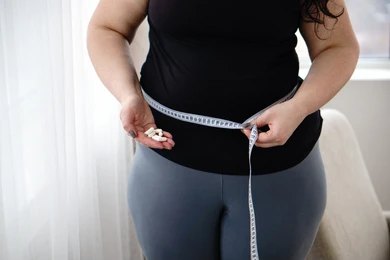Do Protein Supplements Make You Fat?

Introduction
Protein supplements are popular for muscle building and weight loss. But can they actually cause weight gain? The answer isn’t simple—it depends on how you use them.
- Many people assume protein powders automatically lead to fat gain.
- Understanding calories, protein intake, and your body’s needs is key.
- This article clarifies myths, explains science, and helps you use protein supplements wisely.
How Protein Supplements Work
Protein is essential for muscle repair, immune function, and metabolism. Supplements like whey, casein, and plant-based powders provide concentrated protein without excess carbs or fats.
- Your body uses protein for energy or stores excess as fat if you consume too many calories.
- Unlike carbs and fats, protein has a higher thermic effect, meaning your body burns more calories digesting it.
A study in the American Journal of Clinical Nutrition found that high-protein diets can support fat loss when calories are controlled.
5 Evidence-Based Facts About Protein Supplements
1. Protein Alone Doesn’t Cause Fat Gain
- Weight gain happens from excess calories, not just protein.
- A Journal of the International Society of Sports Nutrition study showed that protein supplements help maintain muscle during weight loss.
2. They Can Help with Weight Loss
- Protein increases satiety, reducing overeating.
- Research in Obesity found that high-protein diets led to greater fat loss than low-protein diets.
3. Muscle Gain vs. Fat Gain
- If you eat more calories than you burn—even from protein—you may gain fat.
- A Medicine & Science in Sports & Exercise study confirmed that protein supports muscle growth when paired with exercise.
4. Not All Protein Powders Are Equal
- Some contain added sugars or fillers that increase calorie intake.
- Check labels to avoid unnecessary ingredients.
5. Timing Matters
- Post-workout protein helps recovery, but excess at night without activity may contribute to fat storage.
Protein Supplements vs. Whole Foods
|
Source |
Protein (per 100g) |
Calories |
Best For |
|
Whey Protein |
20-25g |
120-150 |
Fast absorption |
|
Chicken Breast |
31g |
165 |
Whole-food option |
|
Lentils |
9g |
116 |
Plant-based choice |
Whole foods provide nutrients beyond protein, but supplements offer convenience.
Risks and Side Effects
- Excess protein can strain kidneys in people with pre-existing conditions.
- Some supplements contain heavy metals—choose third-party tested brands.
- Digestive issues (bloating, gas) may occur with lactose-based proteins.
For more on supplement safety, see do weight loss supplements actually work.
FAQs
1. Can protein supplements cause hair loss?
High doses may contribute in rare cases. Learn more here.
2. Should I take protein if I’m not working out?
Yes, but adjust intake based on activity level.
3. Are natural sources better than supplements?
Whole foods provide fiber and micronutrients, but supplements are efficient.
For interactions with medications, read this guide.
Bottom Line
Protein supplements don’t inherently cause fat gain—excess calories do. Used correctly, they aid muscle growth and weight management. Choose quality products, monitor intake, and pair with exercise for best results.
About the Author
Mike Hamilton, PhD, is a nutritional scientist specializing in pediatric and family nutrition. A Stanford University graduate, he’s published 50+ peer-reviewed studies on dietary interventions.
For more on protein science, see how protein supplements are made.
